QuestionMy 4 yr old Blood Parrot cichlid was swimming upside down for over a week in her main tank. She had a habit of swimming sideways and hiding in her cave upside down, but I would feed her peas, and she would be back to normal. I try to feed all my fish a variety of fresh foods as well as dry flakes. Yet I am more aware of the swim bladder problem with blood parrot cichlids, so they tend to get a lot more fresh/defrosted foods than my others (peas, canteloupe, mango, live red wigglers, defrosted krill/bloodworms, spinach, and plankton).
I separated her into a hospital tank (9 gal) and treated her tetracycline (1 cap per 10 gal per directions, reserving the leftover gal for top off/cleaning water) and with Jungle Fungus Eliminator (bottle says it clears fungus and bacteria) per bottle instructions for 4 days before performing a 75% water change (per directions) with new treated/medicated water (both tetracycline and Fungus Eliminator).
Initially, she would swim to eat the peas, JUNGLE Anti-Parasite medication pellets (which were soaked prior to feeding her) and tried very hard to catch the red wiggler worm (but was unsuccessful) I gave her on Wednesday.
After the first week, I decided to try to fast her for a few days to see if she would finally eliminate whatever was causing her to be upside down. Still no change.
Her water temp is at 80 degrees, and thankfully the tank she is in (a JEBO) has a built in filter which cascades into the middle of the tank (not using any carbon, just floss) that she has been positioning herself under, because her bottom side and fins would otherwise be exposed to air.
She is still a vibrant pinkish orange and wants to eat, but is having a very difficult time getting to her food. And I am afraid that she is gulping air when she is attempting to eat, which is making her situation remain the same.
I am at a loss at what else to do. She has been treated in the hospital tank for 9 days now, with no change in buoyancy. She seems to be becoming weaker, as now she is not able to get to the bottom of the tank to get food that I try to feed her.
We are very attached to all our fish, but extremely concerned for Karen. Do you have any recommendations for swim bladder problems? I do not want to have to put her to sleep or worse have her suffer and die, I want to do everything possible to help her with this problem.
AnswerHi Marcie,
There are a few possible things going on here. There is also some confusion out there on the internet about swim bladder things. The swim bladder is a separate organ from the digestive system. Food does not affect the swim bladder. Basically the swim bladder is like a bag of gas inside the fish. It normally gets larger or smaller as the fish ascends or descends and helps the fish to maintain buoyancy. When it becomes infected, the "valve" that is used to extract gas, and hence allows the fish to sink, becomes defective and the bag accumulates more and more gas. As a consequence the fish floats. Sadly there is nothing that you can do about this directly. You can tell if this is the problem if you were to gently push the fish down in the water and it floats up despite efforts to not float.
There is another possible problem, namely infection of the digestive tract. In this case, gas can become trapped in the intestine causing the fish to float. This could easily be the result of diet, however, it is unlikely to produce the quantity of gas that would keep a fish floating. More likely the fish would be disoriented.
That leads to a third possible thing. The fish could have neurological damage that is causing it to be "mixed up" as to which way is up. In that case, its swimming would be more erratic.
Of the three, only the diet one is treatable by food. The first one might be treatable by antibiotics but no one really knows what causes these things or how to cure them so it is really just a shot in the dark.
I wish I had better news. Sorry.
-- Ron C.
rcoleman@cichlidresearch.com
Cichlid Research Home Page <http://cichlidresearch.com>

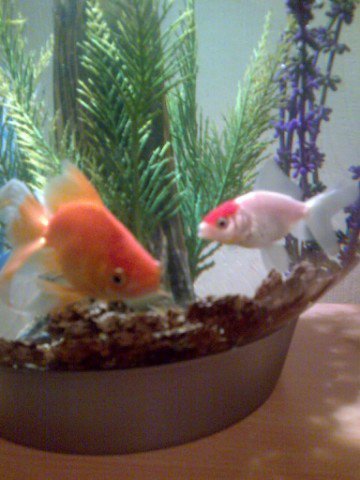 Gold fantail
Question
The Brain and Dory
Hi,
My fish is about 4 yea
Gold fantail
Question
The Brain and Dory
Hi,
My fish is about 4 yea
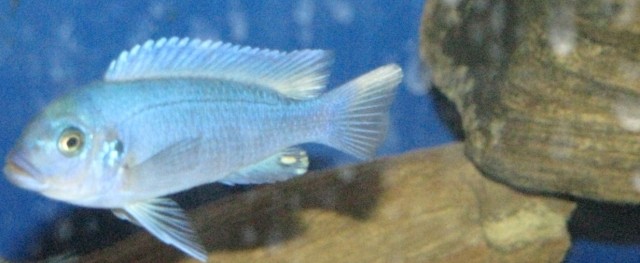 fish spots on tail
Question
IMG0474
i have a 100 gallon tank with cichlid
fish spots on tail
Question
IMG0474
i have a 100 gallon tank with cichlid
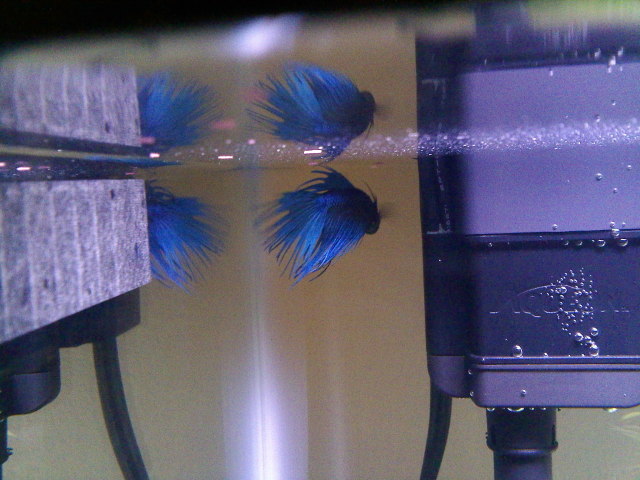 strange betta behavior
QuestionMy Betta
QUESTION: For the past week or
strange betta behavior
QuestionMy Betta
QUESTION: For the past week or
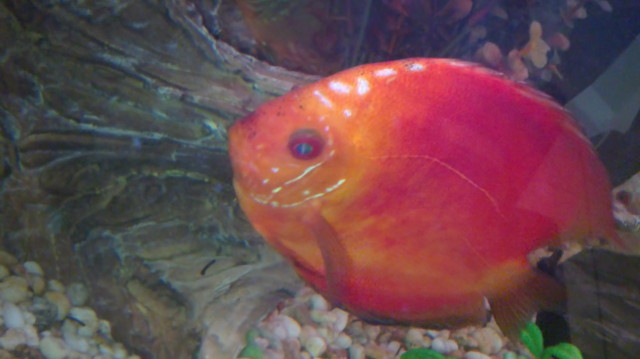 Discus fish
Question
Discus fish
Since 3 months i have been having
Discus fish
Question
Discus fish
Since 3 months i have been having
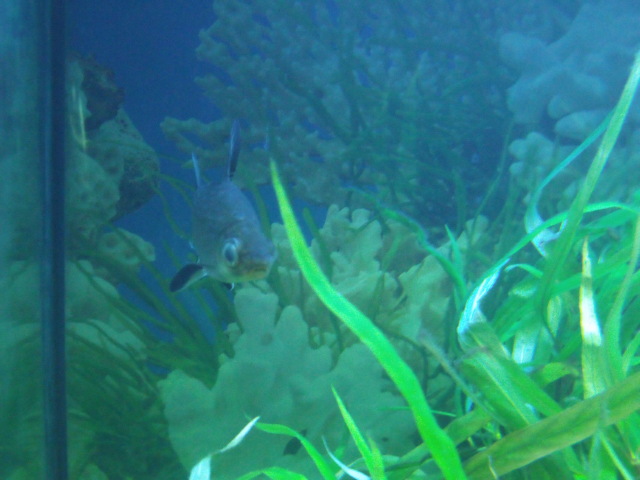 Silver Shark has a problem with one of its eyes
Question
Silver Shark swollen e
I have a 180 litre fish
Silver Shark has a problem with one of its eyes
Question
Silver Shark swollen e
I have a 180 litre fish